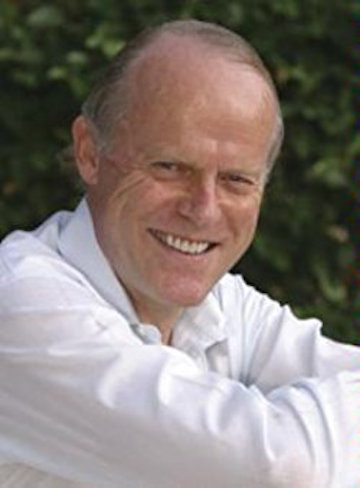
by David Aikman
Until we distinguish between sin and sinner, we will not have the humility.
LONG TIME AGO IN HONG Kong I heard a sermon that has stuck with me. The topic was an unusual one. It was not “The Prodigal Son” but “The Prodigal Elder Brother.” The preacher’s point was deeply challenging: If someone we utterly detested-someone who had cheated and deceived our loved ones and then disgraced our family in a life of reckless squalor-were to come home repentant, only to be instantly and magnificently rewarded for his sudden change of heart, what would our reaction be? Would we respond with joy and generosity, or would we seethe with bitterness over the unfairness of it all?
This issue is not an abstract one for American Christians who have been praying ardently for revival to break out across the country. One of the most striking aspects of true revival is the degree to which massive and often totally unexpected repentance takes place. During the Welsh Revival of 1904, God’s presence was so powerful that deep underground in the coal mines, far from where the preaching took place, some of the most foulmouthed, hard-drinking miners suddenly sank to their knees in anguish over their sins. Virtually overnight they turned from beer-swilling boors into devoted men of God.
Unusual? Of course. Everything about a revival is unusual. That is exactly why we need to think through the possible consequences of our prayers for revival in the United States.
We need to be sure that when those prayers are answered, we not only avoid becoming prodigal elder brothers and sisters, but also harvest wisely the first fruits. Though some revivals (for example, the Azusa Street Revival of 1996 in Los Angeles) have led to phenomenal and far-reaching missionary efforts, others have petered out because local Christians lacked the spiritual preparation to grasp what God was really doing.
Every church that is sincerely praying for revival ought to be training its members in the basics of Christian discipleship. If your neighbor were suddenly convicted of his sin and, trembling, asked you to explain the basic beliefs of Christianity, could you do it?
Former President Jimmy Carter once explained how his own Christian walk had been challenged by a bumper sticker he saw: “If you were arrested for being a Christian, would there be sufficient evidence to convict you?” An appropriate bumper sticker for Christians awaiting revival might be: “If your most irritating neighbor suddenly wanted to become a revival to cope with
Christian, would you have the wit and the grace to help him become one?”
Or would you be a prodigal elder brother? This question is especially important for those of us who are grieved and angry at some of our nation’s moral trends and who think we know the principal organizations, corporations and individuals responsible for them. How would we respond if the leaders of some of the organizations evangelicals love to hate-say, the National Organization for Women suddenly repented? What if Rep. Barney Frank or Sen. Edward Kennedy collapsed on national television in an agony of spiritual remorse?
How would we respond if President Clinton owned up to some of the worst things he has been accused of and in great anguish asked both God and the nation to forgive him? Would we piously snicker, “I told you so”? Would we immediately assume we were being conned? Would we insist that the former miscreant pay for his sins by instantly joining our church or by reciting seven times a day, “I will try to be a Republican now”?
It seems to me that until we can honestly distinguish between the sin and the sinner we will not have the humility or the maturity to cope with a genuine revival in the United States. A seldom expressed reason (even secularists are sometimes polite) that so many agnostics are unattracted to the gospel in America today is that they sense a vindictiveness among those who proclaim it. There is no room for vindictiveness anywhere in the kingdom of God-least of all when God, in His immense mercy, visits revival upon a sinful nation.
David Aikman is an award-winning print and broadcast journalist, an author, and a foreign policy consultant based in the Washington, D.C.-area. His wide-ranging professional achievements include a 23-year career at TIME Magazine with reporting spanning the globe of nearly all the major historical events of the time. He authored multiple ground-breaking books. David Aikman is the founder and chairman of Gegrapha, a global fellowship of Christian journalists.

